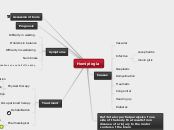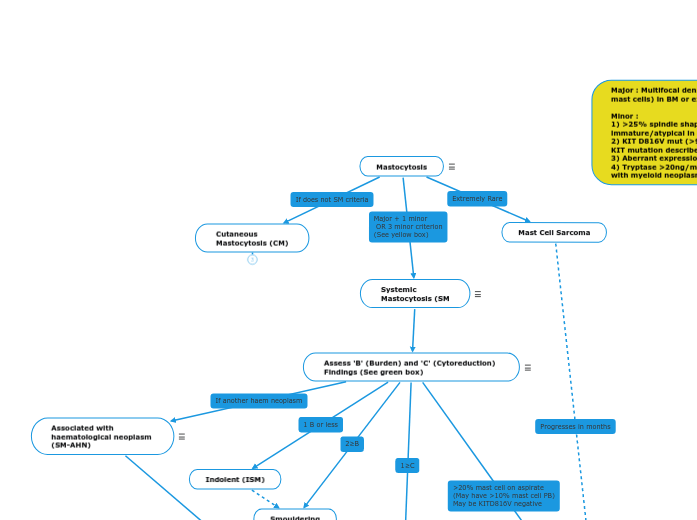Small Bowel by Hetal vithalani
Mechanical obstruction
Small bowell infarction
Small bowel infarction
smll bowel is highly susceptible to ischemic injury
transmural infaction occurs with thrombois embolism of the superior mesentric artery or thrombosis of the mesentric vein
mucosal infarction occurs with marked hypotension
clinically fetures include abdominal pain
bloody dieariea and decresed bowel sounds.
Intussusception
telescoping of proximal segment of bowel forward in to distal segment
most common in infants and children.
in adults, intussusception may be associated with a mass or tumor
it present with intestinal obstruction
abdomianl pain
current jelly stool
it can get infacted
volvulus
Volvulus
twisting of a segment of bowel on its vascular mesentery, resulting in intestinal obstruction and infaction. volvulus is often associated with congential abnormalities such as inestinal malrotation.
common location include the signoid colon and small bowel
complication
infraction and peritonitis
Tumor
Carcinoid Tumor
malignant proliferation of neuroendocrine cells low grade maligancy
Neuroendocrine tumor, most common small bowel tumor (50%)
Common sites: appendix, small intestine, rectum, stomach, colon
Produce 5HT (serotonin), but asymptomatic unless 5HT gets beyond liver’s first-pass metabolism.
Generally, in order for symptoms to occur, the tumor must metastasize to the liver. Uncommonly, primary tumors in the bronchus can cause symptoms without
mets.
f carcinoid metastasizes to liver or beyond → carcinoid syndrome (symptomatic)
Carcinoid syndrome: paroxysmal wheezing, skin flushing, diarrhea, right-heart murmur
They are sometimes quite hard to rember, because they seem unrelated: diarrhea, flushing, diseases of the right heart valves and bronchospasm.
So imagine a toilet with this sign on it:
When in DIARRHEA:
Please FLUSH
using the RIGHT VALVE
to avoid BRONCHOSPASM
Malabsorption syndromes
Lectose Intolerance
Decresed function of the lactase enzyme found in the brush border of entrerocytes
Lactase normally breaks down lectose in to glucose and galactose
presents with abdominal distension and diarrhea upon consumption of milk products undeigested lactose is osmotically active
deficiency may be congetial or acquired
Whipple Disease
is a rare infectious disease involving many organs including small intestines
joints
lung
heart
liver
splean
central nervous system
Caucasian males aged 30 to 50
infecting organisam is
tropheryma whipplei - gram negative rod shaped bacilli
clinically
present with malbsorption weight loss and diarrhea
treatment
antibiotics
Topical Sprue
Tropical Sprue
Malabsorptive disease of unknown etiology
affecting travelers to tropical regions such as the caribean and south america
the microscopic apearance is similar to celiace sprue
treatment
Antibiotics
Vitamin B12
Folate
Celiac Disease
Celiac sprue
Gluten sensitive entrerophathy and nontropical sprue
is due to hypersensitivity to gluten resulting in loss of small bowel villi and malabsorption.
HLA B8 , DR3, and DQ have been linked to celiac sprue.
Microscopically
loss of villi
with increased inttraepithelial lymphocytes and increased plasma cell in the lamina propria
clinically
celiac sprue usally presents with childhood with malasorption.
Symptoms
Abdominal distention
blotting
dermatitis herpetiformis
Treatment
no gluten
Celiac sprue features
CELIAC:
Cell-mediated autoimmune disease
European descent
Lymphocytes in Lamina propria/ Lymphoma risk
Intolerance of gluten (wheat)
Atrophy of villi in small intestine/ Abnormal D-xylose test
Childhood presentation
(Atrophied villi cause less absorption, so diarrhea, weight loss, less energy.)
Congenital
Mechel Diverticulum
Meckel Diverticulum
Outpouching of all three layers of the bowel wall (true diverticulum)
arises due to failure of the vitelline duct to involute
Rule of 2nd
seen in 2% of the population
2inches long and located in the small bowel with in 2 feet of the ileocecal valve
can present during the first 2years of life with bleeding, volvulus, intussusception, or obstruction - mimic appendicitis however most causes are asymptomatic.
gastric metaplasia
Duodenal Atresia
congenital failure of a dudenum to canalize associated with Down syndrom
clinical features
polyhydrammions
Distension of stomach and lind loop of duodenum (double bubble)
Bilious vomiting
Duodenam observes nutrician from food
form in 6th week of pregnency
just below the stomuch
by 10 week of pregnancy - dudenum attresia forms









